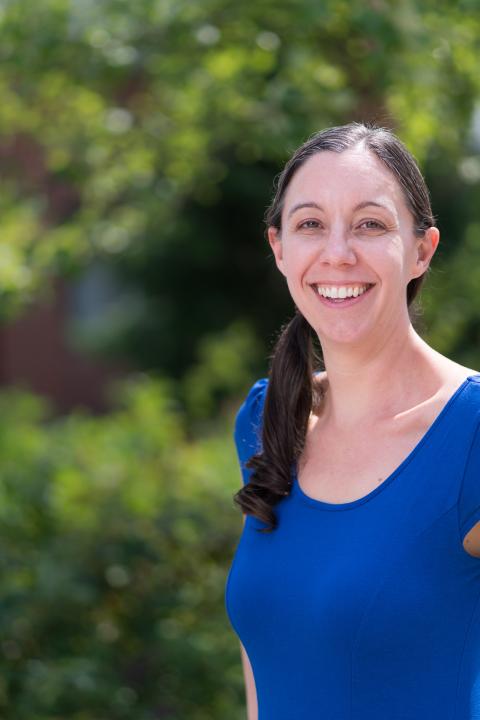
Kathryn Greenslade
Kathryn J. Greenslade, PhD, CCC-SLP, is an Associate Professor in the University of New Hampshire’s Department of Communication Sciences and Disorders. Her research focuses on social communication, or the use of language and nonverbal communication in social interactions. Her work has been widely published in top peer-reviewed journals, including the American Journal of Speech-Language Pathology, Journal of Autism and Developmental Disorders, and International Journal of Language and Communication Disorders. Actively engaged in the American Speech-Language-Hearing Association, International Society for Autism Research, and the UNH Neurodiversity Center Task Force, she contributes to advancing evidence-based assessment and supports to improve social communication for all individuals.
Courses Taught
- COMM 741: Speech-Language Pathology I
- COMM 798/895: Spc Top/Topics in Social Commu
- COMM 805: Research Methods CSD
- COMM 832: School-Age/Adolescent Lang Dis
- INCO 590: Student Research Experience
- INCO 790: Advanced Research Experience
Education
- Ph.D., University of Washington
- M.S., University of Arizona
- B.S., Vanderbilt University
Research Interests
- Autism
- Communicative Disorders, Speech
- Speech Pathology
- Speech/Language Therapy
- Traumatic Brain/Head Injury
Selected Publications
Dutta, M., Murray, L. L., Park, H., Burklow, E., Bose, A., Kim, H., . . . Casilio, M. (2025). Let's Chat About Spoken Discourse: A Tutorial to Support Use of Spoken Discourse Analysis When Providing Aphasia Clinical Services.. Am J Speech Lang Pathol, 34(4), 1931-1966. doi:10.1044/2025_AJSLP-24-00534
Greenslade, K. J., Bushell, J. K., Dillon, E. F., & Ramage, A. E. (2025). The vague language use scale: Clinical utility and psychometrics from adults with traumatic brain injury.. Int J Lang Commun Disord, 60(1), e13130. doi:10.1111/1460-6984.13130
Ramage, A. E., Rowe, A. L., & Greenslade, K. J. (2024). Discourse-Level Communication Success in Aphasia: Unveiling Its Significance through Observer's Ratings.. Semin Speech Lang, 45(4), 381-400. doi:10.1055/s-0044-1789622
Greenslade, K. J., Bogart, E., Gyory, J., Jaskolka, S., & Ramage, A. E. (2024). Story Grammar Analyses Capture Discourse Improvement in the First 2 Years Following a Severe Traumatic Brain Injury.. Am J Speech Lang Pathol, 33(2), 1004-1020. doi:10.1044/2023_AJSLP-23-00269
Greenslade, K. J., Honan, C., Harrington, L., Kenealy, L., Ramage, A. E., & Bogart, E. (2024). Wishes, beliefs, and jealousy: use of mental state terms in Cinderella retells after traumatic brain injury.. Front Hum Neurosci, 18, 1386227. doi:10.3389/fnhum.2024.1386227
Greenslade, K. J., Utter, E. A., & Landa, R. J. (2019). Predictors of Pragmatic Communication in School-Age Siblings of Children with ASD and Low-Risk Controls. JOURNAL OF AUTISM AND DEVELOPMENTAL DISORDERS, 49(4), 1352-1365. doi:10.1007/s10803-018-3837-x